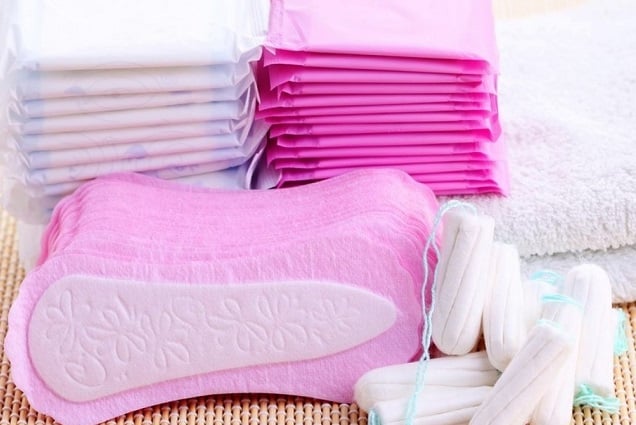Menstrual products like tampons and pads will now be available to women in Scotland for free.
On August 15, the law that makes access to menstrual products a right for women in public spaces came into force in the European country which is part of the United Kingdom.
The period products bill was passed into law unanimously by Scottish lawmakers in November 2020.
The development makes Scotland the first country in the world to offer tampons, sanitary pads, and other menstrual products free of charge.
Its enforcement, it is believed, represents a landmark victory for the global movement against period poverty.
The new law means period products will be available to access in public buildings like schools and universities in Scotland.
Under the law, the Scottish government must set up a scheme to allow anyone who needs period products to get them free of charge.
Schools, colleges, and universities must make a range of period products available for free in their toilets.
The Scottish government will have the power to make other public bodies provide period products for free.
The law is the brainchild of Monica Lennon, a Scottish Labour lawmaker, who introduced its bill in April 2019.
“Proud of what we have achieved in Scotland. We are the first but won’t be the last,” Lennon tweeted on Monday.
Proud of what we have achieved in Scotland. We are the first but won’t be the last. 🏴🩸🙌#PeriodDignity #FreePeriodProducts #MenstrualJustice follow @Period_Poverty for updates. https://t.co/8bFTML3MkK
— Monica Lennon MSP (@MonicaLennon7) August 15, 2022
Lennon said it was reasonable to expect 20 percent of the menstruating population to make use of the programme.
She said official inequality statistics show that nearly 20 percent of women in Scotland live in relative poverty.
In 2018, the Scottish government announced that students in schools, colleges, and universities across the country would be able to access sanitary products for free, through a £5.2 million ($6.3 million) investment.
In 2019, it allocated another £4 million ($4.85 million) to make period products available without charge in libraries and recreational centers.
MENSTRUAL HYGIENE IN NIGERIA
Nigeria hasn’t exactly been left out of the global conversation about period poverty and menstrual hygiene.
In 2020, TheCable’s Kolapo Olapoju conducted an investigation to examine how the inaccessibility of menstrual products across local communities in Nigeria was keeping young girls out of school.
A major cause of period poverty in Nigeria remains the high cost of menstrual products.
On average, women in Nigeria are on their period for about five days and use about three pads a day.
A packet of 10 sanitary pads costs between N400 and N2,000.
In most cases, women might need more than a packet for a month depending on the menstrual flow.
Girls in schools will spend up to N55,000 on sanitary pads for six years, about N9,600 a year and N800 in a month.
Copyright 2025 TheCable. All rights reserved. This material, and other digital content on this website, may not be reproduced, published, broadcast, rewritten or redistributed in whole or in part without prior express written permission from TheCable.
Follow us on twitter @Thecablestyle

